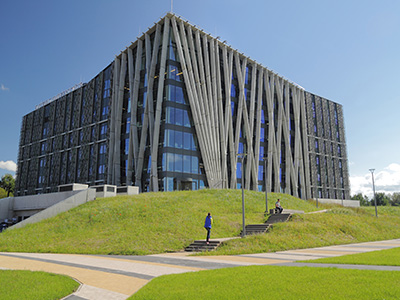Education builds a nation. In Latvia, the education system is geared towards providing quality and extensive schooling to children to improve personal growth, human interest, and the improvement of the country. The schooling system provides equal opportunities for learning to every child.

As surmised by the Council of Europe International Review, the Latvian extracurricular education known as hobby education is an excellent example of a well-practised extracurricular education. Providing knowledge and skills in various fields such as sports, arts and crafts, technology, engineering, etc… more than 60% of students take part in this type of education.
Latvia’s first law on education ensures ethnic minority education giving freedom of education to Polish, Russian, German, and Jewish schools. Right now, Latvia hopes to fully expand and fund an ethnic minority education model able to deliver formal education in five minority languages namely, Estonian, Polish, Ukrainian, Byelorussian, and Russian.
Vocational education is a special element of the education system in Latvia. Teaching values, improving skills and imparting knowledge in art, sport, music, and even culture are so important in the Latvian education system.
Stages of the education system
Pirmsskolas Izglītība
Every child in Latvia aged 1.5 years and above is legally entitled to early childhood education and care. For children aged five and six-year-old, access to pirmsskolas azglītība is mandatory. Children are expected to attend schools in their vicinity. This type of education qualifies a child to attend a primary school, by preparing him or her for the basic education.
Pamatizglītība
Basic education consists of primary and lower secondary education starting at age seven. It takes 9 years of schooling, ending at grade 9. This is the point where a child’s life begins. They are taught several subjects including the History of Latvia, Latvian culture, and languages and at the end of the nine years, a certificate is issued for their continuance to upper secondary schools.
Vidējā Izglītība
Secondary education ends at this level. It begins at age 16 and ends at age 19. This type of education is not mandatory yet persons with completed upper secondary education are numerous and above the OECD average.
Vocational upper secondary education usually lasts for a duration of two to four years to finalize. At the end of the programme, certificates for varied qualification levels are issued to students. The programmes are normally for the upper secondary education category, but some institutes offer classes for children at the lower secondary education level.
Just as with the rest of the world, Latvian education offers higher education programmes after the upper secondary education in the forms of public and private augstskola such as universitāte, akadēmija, and koledza. All of which offer professional and academic tertiary programmes. The degree structure is the same as in other schools: Bachelor’s, master’s, and doctorate levels. The type of course usually determines the duration of study in tertiary institutions. Bachelor’s degrees take four years, five years to six years while master’s degrees take two or more years.
There are several educational institutions in Latvia and finding the one that best suits you or your child might be hard. Below is a list of some of the best schools in the country, both for Latvians and international students.
1. Audentes International School
2. Exupery International School
3. University of Latvia
4. Latvia University of Life Sciences and Technologies
5. Riga Technical University
6. Riga Stradins University
7. Stockholm School of Economics in Riga
8. International School of Latvia
9. Art Academy of Latvia
10. King’s College
11. The British School of Latvia
12. Ventspils University of Applied Sciences
13. University of Applied Sciences
14. Academy of Sport Education

